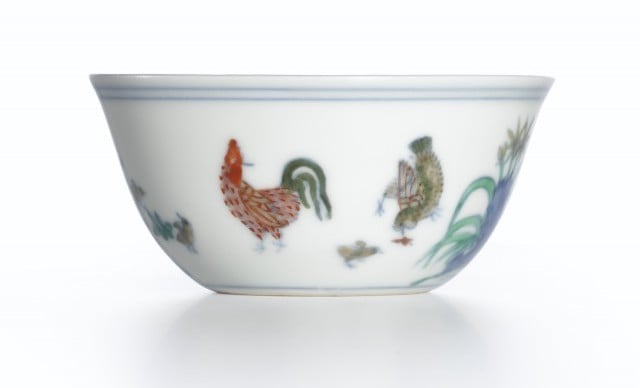
Photo: courtesy of Sotheby's.
Simon Barker, a high court judge in the UK, ruled that a rare collection of 17th-century Ming dynasty porcelain must be split following a heated, bitter fight among four children of the collector, Sir Michael Butler, a former adviser to Prime Minister Margaret Thatcher, according to a report in the Financial Times (paywall).
According to the high court, the collection, which numbers just over 500 pieces, is to be divided among the four siblings despite efforts by the two younger children, Katharine and Charles, to keep the pieces in a purpose-built museum in Dorset.
Their father, a former permanent representative to the European Commission, began collecting Ming ceramics more than 50 years ago. The collection has been described by one expert as “the finest collection of its kind in the world,” according to the FT report. Butler passed away in 2013 at the age of 86, which precipitated the trouble, according to FT.
A story in the Daily Mail this past March said the collection was valued at over $10 million (£8 million). The Daily Mail said the bitter battle exposed Butler’s marital infidelity and financial favoritism shown to his two youngest children. The elder siblings, Caroline and James, wanted to split the collection, claiming they were entitled to 125 pieces each.
Interestingly, the case hinged on an “arcane piece of property law—section 188 of the Law of Property Act 1925—that governs the division of ‘chattels,'” as opposed to being subject to Sir Michael’s wishes, which “have some moral standing” but “no legal significance.”
The report notes that while the collection is insured for $10 million (£8 million), the true value is more likely in the “tens of millions” of pounds. In 2014, a small Ming bowl sold for almost $40 million at Sotheby’s Hong Kong.
The future of the purpose-built museum, which opened in 2010, is also uncertain, the FT states. Youngest sibling Katharine is reportedly “devastated” over the decision to break up the collection.
The case is to be appealed and all parties agreed to not sell any pieces until the final judgment. If leave for appeal is granted, the case could drag on considerably longer.